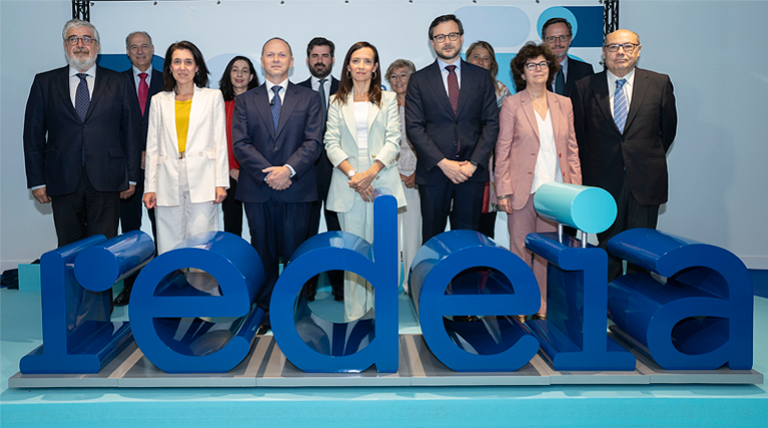We are a global operator of essential infrastructure
- ‘Redeia is a key player in energy transition’ and is ‘solidly prepared’ to face future risks and sustainability opportunities, says the agency
- S&P highlights Redeia's efforts to protect biodiversity as ‘greater than others' in the sector’, and its talent management, with a ‘highly committed and diverse’ workforce
Today, Standard & Poor's released its assessment report of Redeia on ESG (Environmental, Social and Corporate Responsibility) performance, which assigns the company a rating of 82 points out of a maximum of 100.
The rating agency concludes that the group is ‘solidly prepared’ to take on the future risks and opportunities of sustainability because of its role as a facilitator of the decarbonisation of the energy sector. ‘Redeia is a key player in energy transition and can help Spain meet its 2030 renewable energy generation and emission reduction targets. Its strategic plan for 2021-2025 will strengthen its assets to accelerate the penetration of renewable energies and ensure the security of electricity supply, as contemplated in the new REPowerEU plan’, the document notes.
In S&P's opinion, ‘the company is openly committed to its stakeholders, has anticipated global, sectoral and sustainability trends in the past, and has managed to overcome difficulties’. Along these lines, the company appreciates the investments that the group is making through Elewit, its innovation platform, to find solutions to the challenges of the energy and telecommunications sectors.
The S&P report states that Redeia ‘has a sustained track record of activities consistent with the transition to a low-carbon economy’, a ‘strong climate position within the sector’, and a percentage of GHG emissions in Red Eléctrica's transportation network lower than that of other TSOs in the world.
Its analysis shows that Redeia makes greater efforts than its peers to protect and restore biodiversity, with an investment of 26.9 million euros in 2021 in initiatives to protect birds and restore terrestrial and marine forests, among others.
The company highlights the soil management carried out by the TSO, with a mitigation hierarchy that, firstly, avoids construction in areas rich in biodiversity, then applies measures to reduce the risk of damaging the environment and, finally, deploys voluntary actions to compensate for inevitable impacts. In this sense, it considers to be favorable that less than 15% of the lines of the energy transmission grid are in protected areas, that all of them have conservation and management plans in place, and that 71% of the critical priority areas are marked with bird-saving devices, with the objective of reaching 100% by 2023, ahead of its peers in the sector.
Also along the lines of environmental sustainability, the company underlines that Redeia is ahead of its peers in the integration of circular economy criteria in procurement and tenders and sees it as positive that 88% of the waste generated in 2021 has been recycled, reused or used for energy recovery.
A ‘sound gender diversity policy’
In the opinion of S&P, Redeia's talent management follows international best practices and results in a workforce that is ‘highly committed and diverse in gender, skills, career path and experience’, with 27% female representation, above industry average, which rises to 50% on the board of directors, demonstrating ‘a sound gender diversity’. Likewise, the report points out that the satisfaction and turnover data of its employees are better than those of its peers.
Standard & Poor's highly values the independence and composition of the board of directors, which counts 12 members with diverse skills, backgrounds and experience adjusted to the needs of the business. It is also subject to strong supervision and maintains high attendance at its three separate committees on Sustainability, Appointments and Remuneration, and Auditing.
Finally, the rating company remarks the implementation of ‘strong and consistent values’ in all of Redeia's operations and supply chains, in line with international best practices. ‘Its policies are public and detail its ESG principles, including anti-corruption, cybersecurity and risk management regulations. The code of conduct, which is effectively implemented throughout the value chain, has been reviewed by Transparency International, an advanced practice in the industry’. It collects and applauds both the system to manage possible complaints and the application of the due diligence of integrity of counterparts when selecting and monitoring third parties, as such measures help to avoid corruption.
With regard to transparency, the evaluation considers the publication of specific reports for tax transparency and diversity by the company to be an advanced practice and assesses the history of published, audited, complete and consistent financial and non-financial reports.














